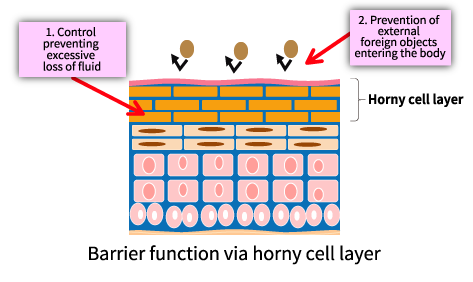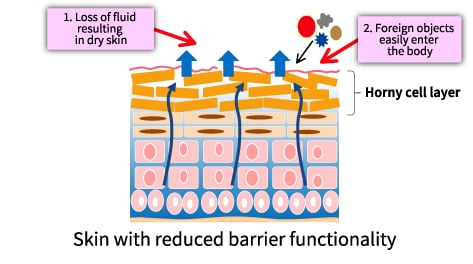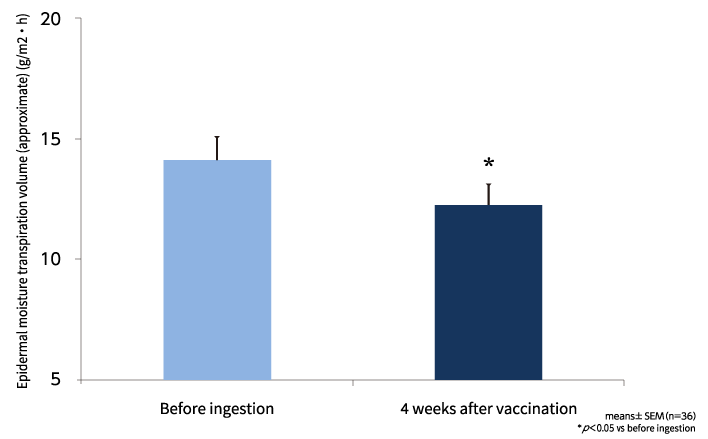|
Top page > Forefront of lactic acid bacteria research > Information on yogurt containing collagen peptides and milk ceramides > Effect on skin's barrier function
Effect on skin's barrier functionHow does the skin's barrier function work?While the outermost layer (stratum corneum) of our skin is only about 0.02 mm thick, it has the crucial function of serving as a barrier. If the skin’s barrier function deteriorates, the water content inside the body could be lost, causing dry skin symptoms and making it easier for foreign agents to intrude into the body, as research has proven.
This is an illustration of the stratum corneum, the outermost layer of the skin.
When skin’s barrier function is compromised, it not only leads to dry skin through the evaporation of water but also increases the risk of foreign particles entering the body. Yogurt containing collagen peptides and milk ceramides promotes the skin’s barrier function.In a study conducted on female subjects that self-reported dry skin conditions, yogurt containing collagen peptides and milk ceramides was provided for four weeks. Subsequent analysis revealed that the amount of water that evaporated from the subjects’ cheeks (transepidermal water loss) was reduced, which suggests that the ingestion of the trial food might have promoted the barrier function of the subjects’ skin and improved their dry skin symptoms.
Figure created based on Aesthetic Dermatology
* Transepidermal water loss: The amount of the body’s water that evaporates (is lost) through the outermost layer of the skin. The smaller this value is, the better the skin’s barrier function is.
|
||||||||||||||||





